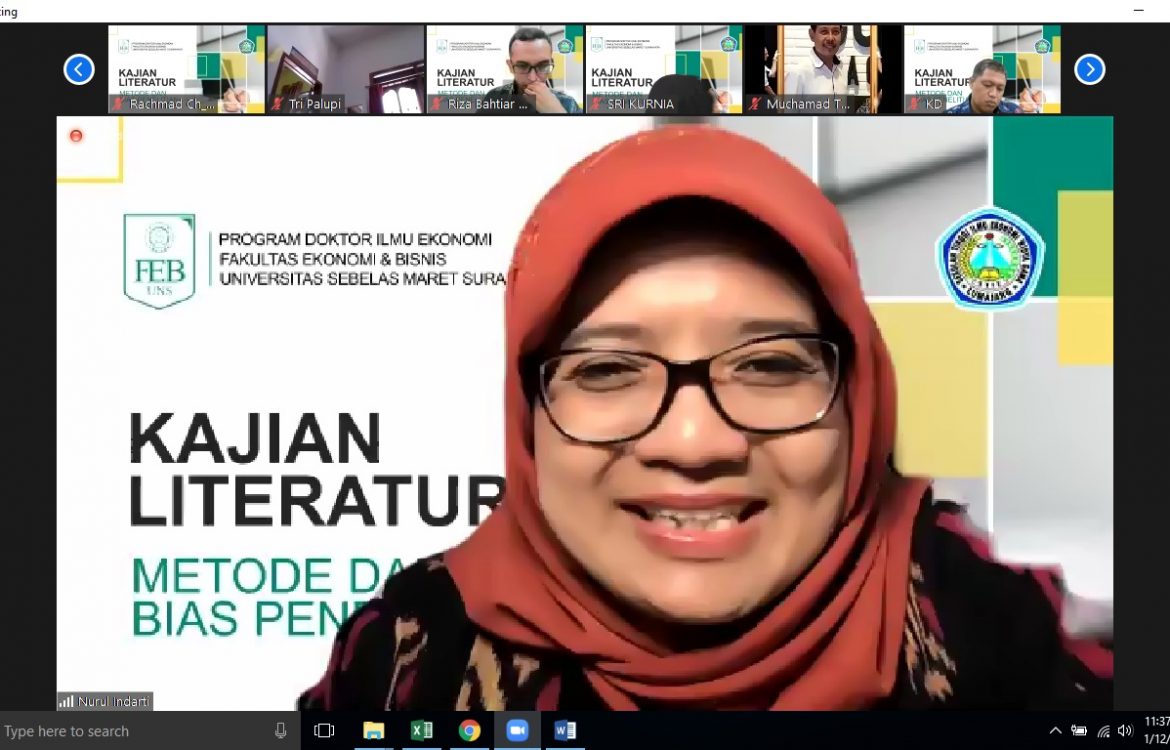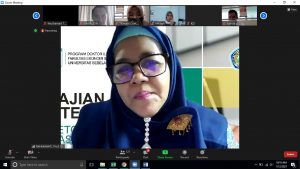
Literature Review Webinar by PDIE UNS
The Doctoral Program in Economics (PDIE) Faculty of Economics and Business (FEB) Universitas Sebelas Maret (UNS) Surakarta held a webinar on ‘Literature Review: Research Method and Bias’ on Tuesday (12/1/20201) through the Zoom Cloud Meeting application.
Inviting Prof. Nurul Indarti, Sivilekonom, Cand Merc., Ph.D. from FEB Universitas Gadjah Mada (UGM) Yogyakarta, the webinar was attended by 190 participants. Opening the event, the Head of PDIE, Prof. Rahmawati reveals that the webinar is compulsory for the students who currently taking the Research Methodology course and new student. However, the webinar is also open for public.
Prof. Nurul opened her material with the definition of literature review as a summary of a research topic in a particular field that will support identifying specific research questions. “This stage emphasized how the researcher arrived at their research question,” Prof. Nurul explained.

Head of PDIE FEB UNS, Prof. Rahmawati
In her session, Prof. Nurul also explained the benefit and aims of the literature review. The literature review benefits are providing a specific and thorough background in understanding a topic and underlie the importance of the study. This stage also brings new research ideas and limits a topic and shows a specific topic to be studied.
The literature review aims to differentiate between what has been done and what should be done. With the literature review, a researcher can identify the important and relevant variables for a research topic, synthesize ideas and essential findings from previous studies, and find new perspectives. The literature review also aims to rationalize the significance of issues to be studied to identify appropriate research methodology and technique implemented in previous research and places the current study in the context of novelty.
Prof. Nurul also shared tips to choose a research topic. First, consider the novelty aspect, relevance, and personal. The novelty aspect can be achieved through the complexity of the phenomenon, the relationship among the research variables, the method employed, and the observation context. Third, relevance is presenting the level of the importance of the research topic, and lastly, personal.
Prof. Nurul concluded the session with an explanation about bias. Bias could happen in the bibliometric literature study. It is vital to understand this bias and mitigate bias by identifying its causes and impacts. The mitigation of bias can be performed at the conceptual and technical level, and researchers should understand the fundamentals of in-depth literature study. (Humas)
